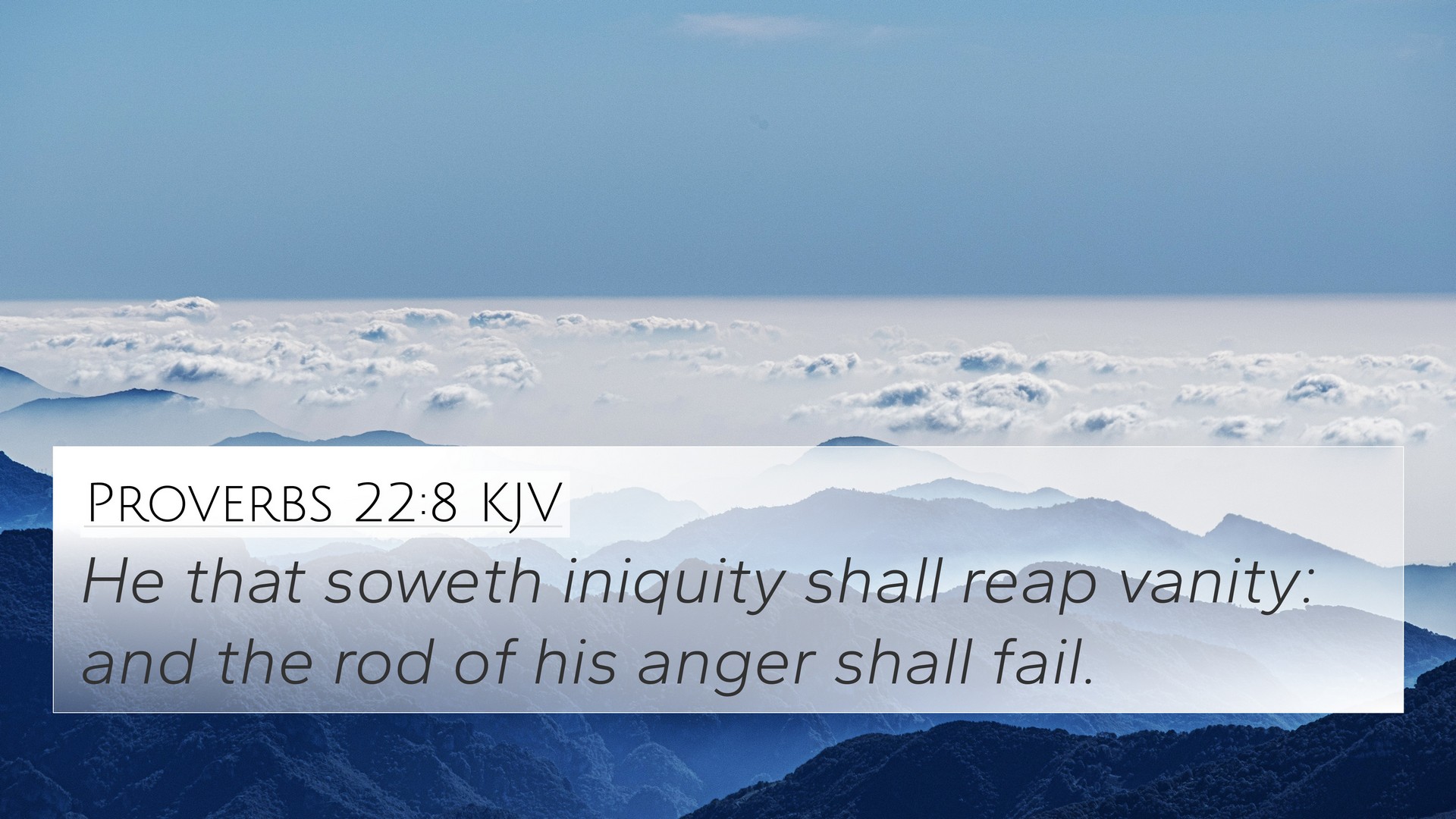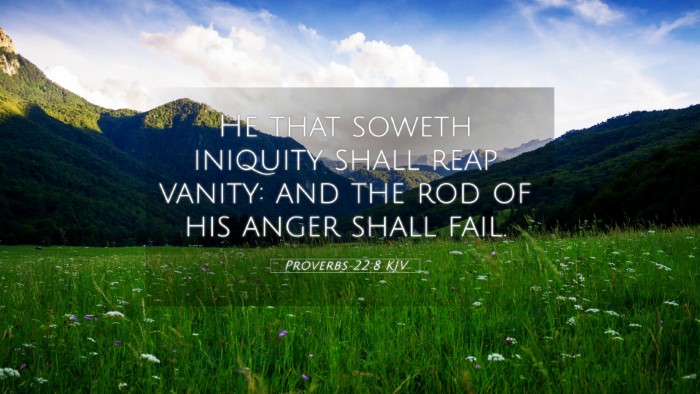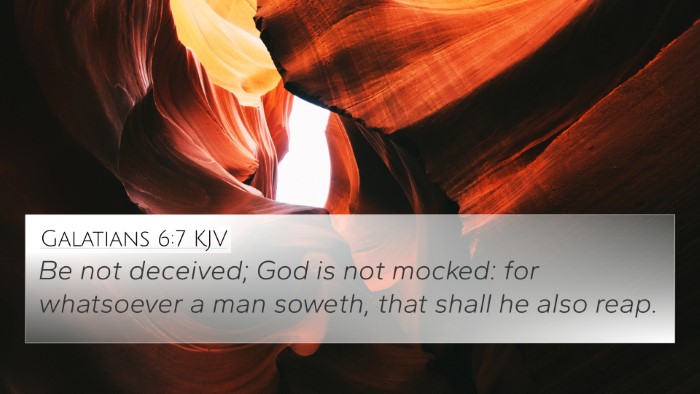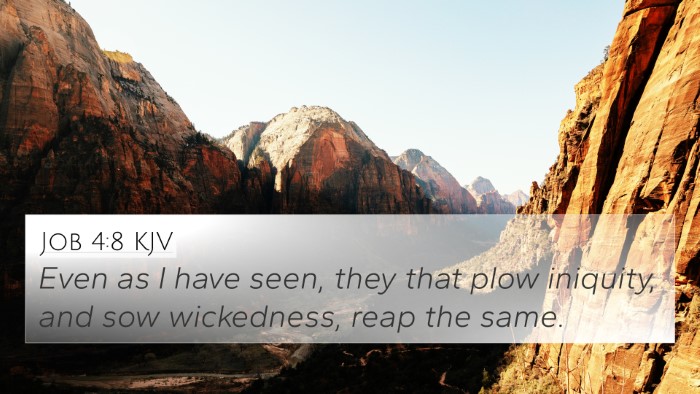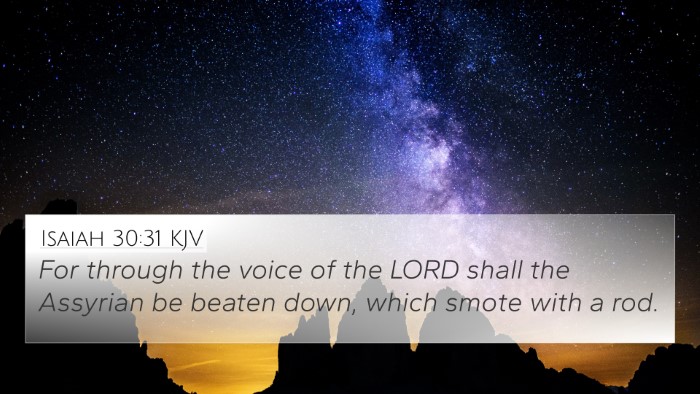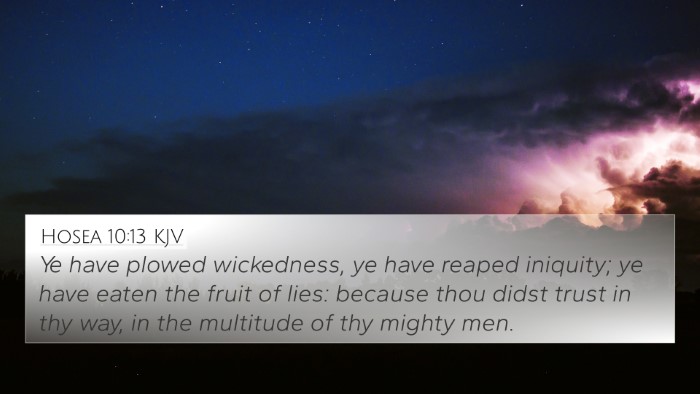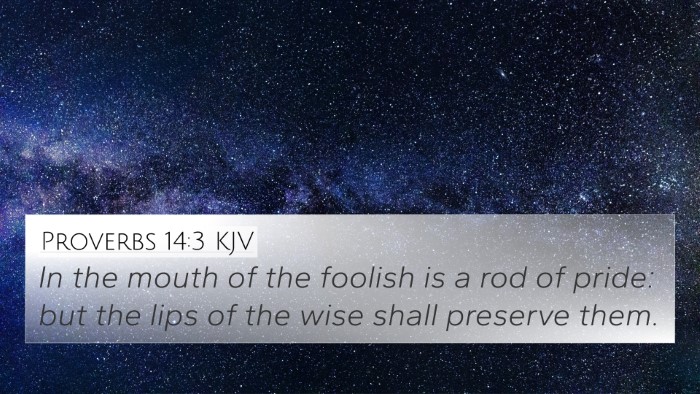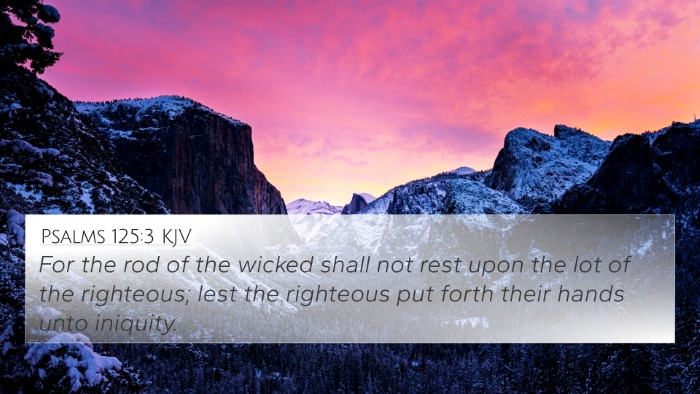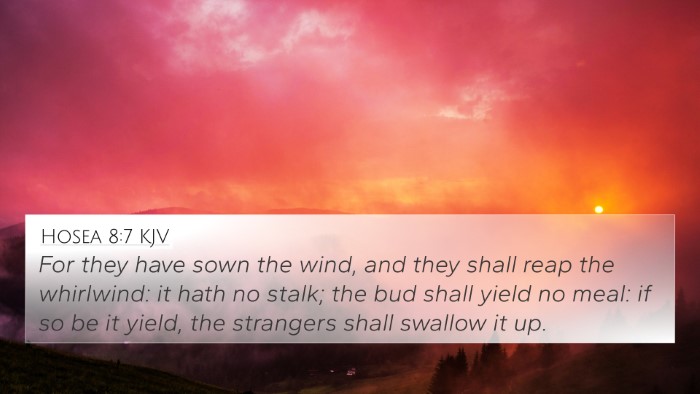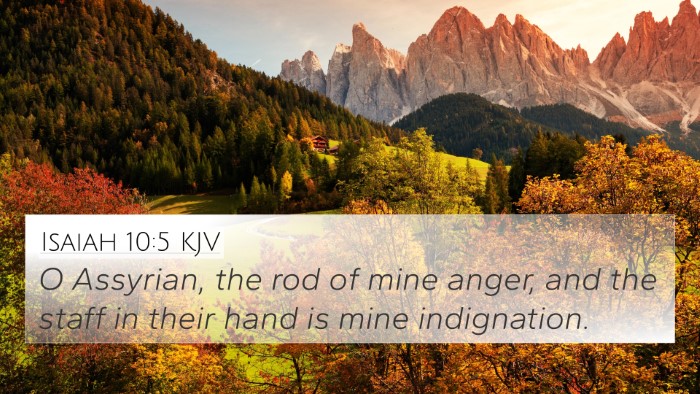Understanding Proverbs 22:8
Proverbs 22:8 states: "He who sows iniquity will reap sorrow, and the rod of his anger will fail." This verse encapsulates a profound principle about the consequences of one's actions, illustrating the biblical law of sowing and reaping.
Key Themes and Insights
- The Law of Sowing and Reaping: This principle is fundamental throughout scripture, indicating that actions (sowing) directly influence outcomes (reaping). Just as farmers understand that sowing seeds leads to harvest, spiritual sowing results in spiritual outcomes.
- Consequences of Iniquity: The term "iniquity" signifies sin or wrongdoing. It emphasizes that engaging in sinful behavior brings about ruin and sorrow.
- The Nature of Anger: The "rod of his anger" symbolizes the punitive consequences that arise from irrational or unchecked aggression and anger. These consequences will ultimately fail if they stem from malice.
Commentary Insights
Matthew Henry's Commentary
Henry describes this verse's wisdom as a moral truth. He emphasizes that those who initiate wrongdoing will inevitably face repercussions, often more severe than anticipated. His commentary elaborates that the rod, representing penalties or discipline, will fail those who harbor anger and malice.
Albert Barnes' Notes
Barnes provides a perspective on the effectiveness of the "rod of anger," which he notes is largely ineffective when used excessively or inappropriately. He stresses that a life led by anger results in self-destructive patterns, and the sorrow that comes from iniquity serves as a divine principle of retribution that is immovable and sure.
Adam Clarke's Commentary
Clarke draws attention to the idea of reaping sorrow as a direct result of sinful actions. He warns against the false comforts that iniquities may bring and suggests that the sound advice of wisdom in Proverbs serves as a warning against foolish and evil paths.
Cross-References to Proverbs 22:8
To gain a deeper context, it's essential to explore cross-references that echo the themes found in Proverbs 22:8.
- Galatians 6:7: "Do not be deceived: God cannot be mocked. A man reaps what he sows." - Affirming the law of sowing and reaping.
- Proverbs 11:18: "The wicked earns deceptive wages, but he who sows righteousness gets a true reward." - Highlights the distinction between paths leading to sorrow and reward.
- James 3:18: "And a harvest of righteousness is sown in peace by those who make peace." - Emphasizes peace as an alternate sowing that yields positive outcomes.
- Proverbs 1:31: "So they will eat the fruit of their own way and be filled with their own devices." - Illustrates the natural consequences of one’s actions.
- Romans 2:6: "He will repay each person according to what they have done." - Reinforces the accountability that every individual has for their choices.
- Proverbs 15:10: "Stern discipline awaits anyone who leaves the path; the one who hates correction will die." - A warning that reflects the harsh realities of living in iniquity.
- Proverbs 14:34: "Righteousness exalts a nation, but sin is a reproach to any people." - A broader view of the consequences of sin on society.
Thematic Connections with Other Bible Verses
Understanding Proverbs 22:8 is enhanced through thematic connections with other scriptures:
- Luke 6:38: "Give, and it will be given to you." - Reflects the reciprocal nature of our actions.
- Matthew 7:2: "For with the same measure you use, it will be measured back to you." - Another reiteration of the principle seen in Proverbs 22:8.
- 1 Peter 3:9: "Do not repay evil for evil or insult for insult." - Encourages a path away from anger and its destructive tendencies.
Cross-Referencing Biblical Texts
Utilizing tools for cross-referencing, such as a bible concordance or a bible cross-reference guide, can enrich your study of Proverbs 22:8. These resources assist in identifying connections between Bible verses and enhance your understanding of thematic Bible verse connections.
Conclusion
Proverbs 22:8 serves as a reminder of the significant and often inevitable consequences of our actions. By examining various commentaries and related scriptures, we unveil the depth of this wisdom, urging readers to pursue righteousness and avoid the snares of iniquity. Whether through cross-referencing biblical texts or understanding Bible verse parallels, engaging with this verse invites us to reflect deeply on our life choices.
